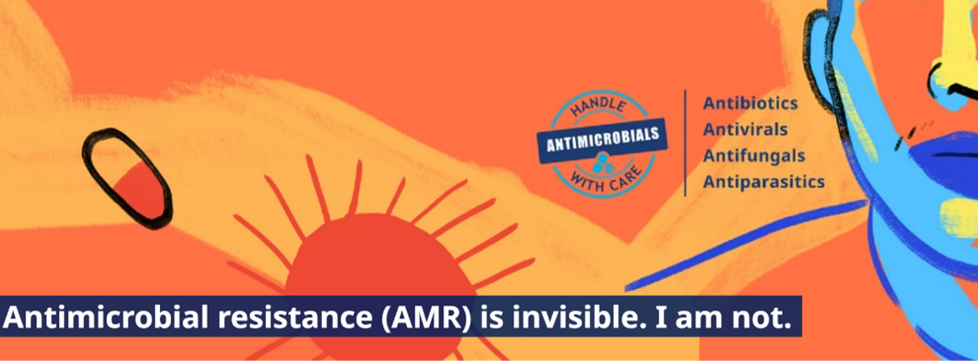Back to News
World AMR Awareness Week
Posted or Updated on 15 Nov 2024

Next week, 18 to 24 November marks the launch of the 2024 World Antimicrobial Resistance Awareness Week (WAAW).
This annual campaign, led by the World Health Organisation (WHO), aims to increase awareness and understanding of AMR and to promote best practices among the general public, health workers and policy makers to reduce the emergence and spread of drug-resistant infections.
The theme for the World AMR Awareness Week 2024 is: Educate. Advocate. Act Now.
Please see posters and leaflets at all our surgeries.
World Antimicrobial Resistance (AMR) Awareness Week 18 to 24 November 2024
Next week, 18 to 24 November marks the launch of the 2024 World AMR Awareness Week (WAAW). This
annual campaign, led by the World Health Organisation (WHO), aims to increase awareness and
understanding of AMR and to promote best practices among the general public, health workers and policy
makers to reduce the emergence and spread of drug-resistant infections. The theme for the World AMR
Awareness Week 2024 is: Educate. Advocate. Act now.
In primary care, the Northwest region has the second highest volume of antibiotic prescribing compared to
all other regions in England. Although Lancashire and South Cumbria ICB is failing to meet the primary care
NHS England antibiotic consumption target, encouragingly the latest data shows an improvement as the
volume of antibiotic prescriptions issued has decreased over the past 12 months. (data source: epact2
dashboard)
Antimicrobial Stewardship Messages for Healthcare Professionals:
• Ensure treatment is in line with antimicrobial prescribing guidelines. (1) Preston, Chorley and South
Ribble primary care areas are advised to refer to NICE guidelines and West Lancashire should refer to
Pan Mersey antimicrobial guidelines. NICE guidance can be accessed at NICE: antimicrobial
prescribing guidance. Pan Mersey antimicrobial guidelines can be accessed at Pan Mersey Formulary
• To avoid inappropriate antibiotic prescribing in the context of viral infections, it is recommended to
follow current NICE guidelines to infer if pneumonia has a COVID, viral or bacterial cause. (1)
• Explain to patients that antibiotics do not prevent or treat viral infections – antibiotics can cause
side-effects, including nausea and diarrhoea; their use can also increase the risk of spreading
infections that are caused by bacteria resistant to antibiotics. (1)
During WAAW the NHS England AMR Programme Team will be delivering a series of free webinars across a
range of themes from recurrent urinary tract infections to introducing antibiotic prescribing improvement
schemes and are aimed at healthcare professionals. To access and to register your place, go to: World AMR
Awareness Week 2024 | NHS England Events
WAAW resources can be found at UKHSA World AMR Awareness Week 2024 and WHO World AMR
Awareness Week 2024 including the WAAW global colour campaign: Go Blue for AMR. Explore the TARGET
antibiotics toolkit designed for healthcare professionals in all primary care or community settings. This can
be accessed at TARGET antibiotics toolkit hub
References:
1. UKHSA. Antimicrobial resistance awareness: toolkit for healthcare providers. 23rd September 2024